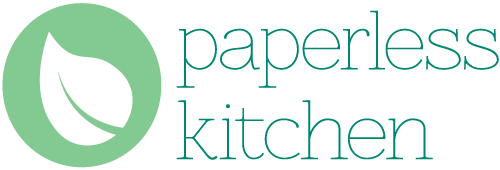PaperlessKitchen Blog
Design Your Own Custom Green Disposable Dinnerw...
Leafware palm leaf dinnerware has always been great for parties, weddings and corporate events, but we're excited to announce that it's better than ever! Paperless Kitchen is now offering Leafware...
Design Your Own Custom Green Disposable Dinnerw...
Leafware palm leaf dinnerware has always been great for parties, weddings and corporate events, but we're excited to announce that it's better than ever! Paperless Kitchen is now offering Leafware...
GREEN APP REVIEW: SCANNER PRO 6 by READDLE
At Paperless Kitchen, we're always on the lookout for new ways to reduce how much paper we use, so I was pretty excited to learn about Scanner Pro 6 by...
GREEN APP REVIEW: SCANNER PRO 6 by READDLE
At Paperless Kitchen, we're always on the lookout for new ways to reduce how much paper we use, so I was pretty excited to learn about Scanner Pro 6 by...
GREEN APP REVIEW: HANDPICK
Did you know that most of us make nearly double the amount of food that we eat and throw roughly 25 percent of it away in the end and that...
GREEN APP REVIEW: HANDPICK
Did you know that most of us make nearly double the amount of food that we eat and throw roughly 25 percent of it away in the end and that...
PLASTIC WASTE GOES COUTURE
Even though most communities now offer curbside recycling programs, we still have a long way to go in the fight against plastic waste. The average person will throw away 600...
PLASTIC WASTE GOES COUTURE
Even though most communities now offer curbside recycling programs, we still have a long way to go in the fight against plastic waste. The average person will throw away 600...
Back to School Sale at Paperless Kitchen!
It's that time of year! The little ones head back to school, making mornings stressful and your family's impact on the environment potentially greater. At Paperless Kitchen, we've been busy...
Back to School Sale at Paperless Kitchen!
It's that time of year! The little ones head back to school, making mornings stressful and your family's impact on the environment potentially greater. At Paperless Kitchen, we've been busy...
Top Green Reusables for Back to School
Last time, we showed you some biodegradable, low eco impact disposable solutions for school lunches, but those aren't the only green products out there for your kiddos to use this...
Top Green Reusables for Back to School
Last time, we showed you some biodegradable, low eco impact disposable solutions for school lunches, but those aren't the only green products out there for your kiddos to use this...
